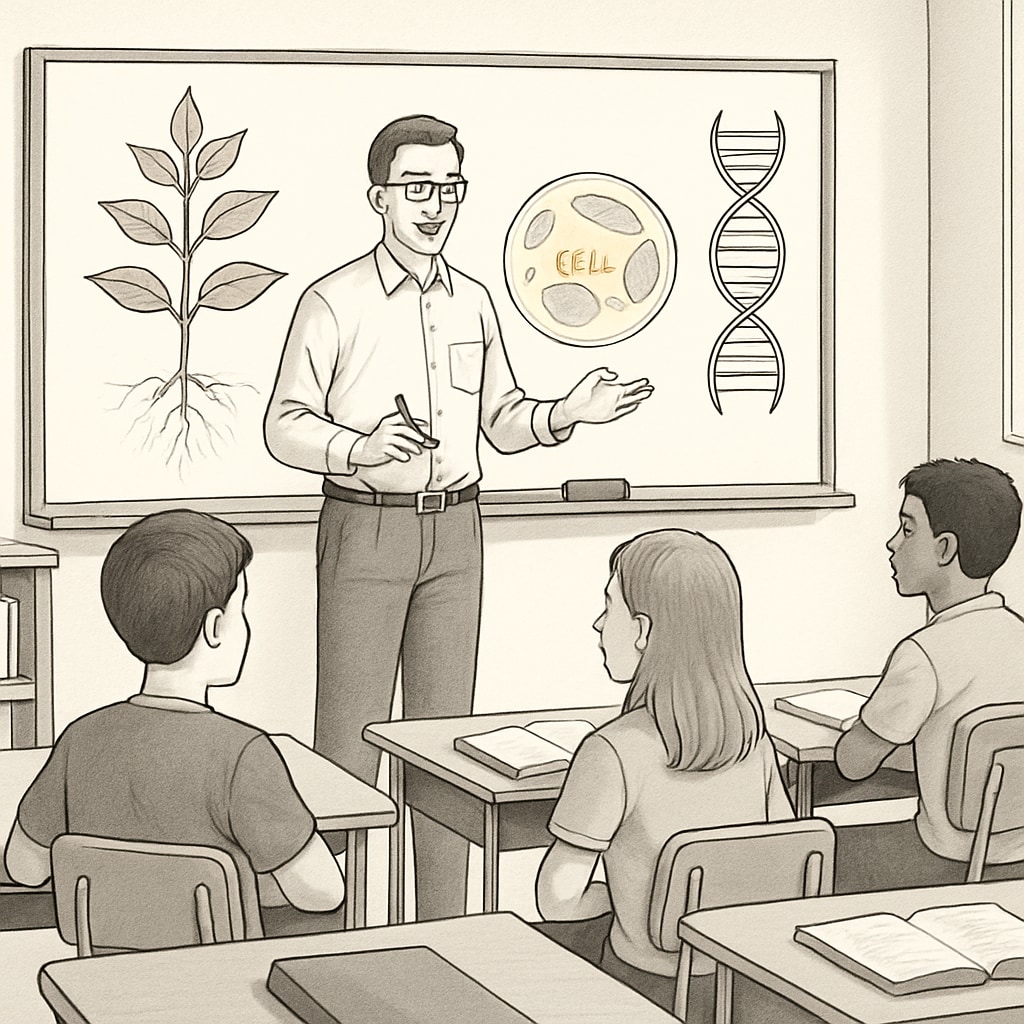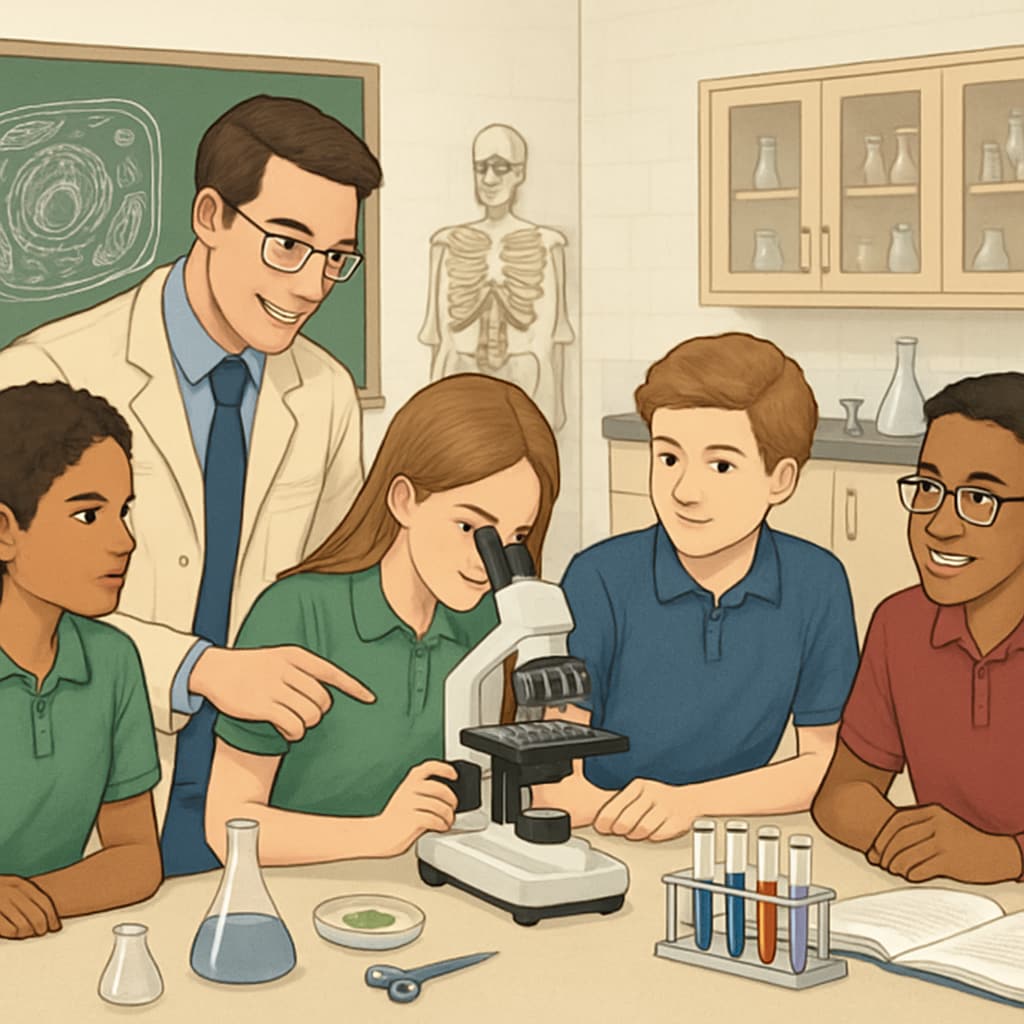Transitioning from a biology background to an education master’s degree represents a unique and fulfilling career transformation. For biology graduates interested in teaching, this path offers an opportunity to combine their scientific expertise with a passion for education. In this article, we explore the feasibility of this career shift, analyze its advantages and challenges, and provide actionable steps to help you succeed in this exciting journey.
The Feasibility of Transitioning from Biology to Education
Many biology graduates wonder whether their scientific training can be effectively leveraged in an educational setting. The answer is a resounding yes. Education systems worldwide are increasingly emphasizing STEM (Science, Technology, Engineering, and Mathematics) education, creating a high demand for teachers with strong STEM backgrounds. As a biology graduate, you bring valuable analytical skills, content knowledge, and research experience that can enrich your teaching practice.
Moreover, an education master’s program is designed to equip you with pedagogical skills, classroom management techniques, and curriculum design expertise. These programs often welcome candidates with non-education bachelor’s degrees, recognizing the unique perspectives they can bring to teaching.

Advantages of Pursuing an Education Master’s with a Biology Background
Transitioning from biology to education offers several advantages:
- High Demand for STEM Educators: Schools often face shortages of qualified science teachers, making biology graduates highly sought after.
- Opportunity to Make a Difference: Teaching allows you to inspire the next generation of scientists and foster a love for biology among students.
- Transferable Skills: Your lab experience, critical thinking, and problem-solving skills are directly applicable to teaching.
- Career Flexibility: An education degree opens doors to various roles, including curriculum development, educational consulting, and school administration.
Additionally, the hands-on nature of biology – from conducting experiments to analyzing data – provides rich material for engaging and interactive lessons.
Challenges to Anticipate and Overcome
While the transition from biology to education is feasible, it does come with challenges:
- Adapting to Pedagogical Practices: As a biology graduate, you may need to develop teaching techniques and classroom management strategies.
- Learning Education-Specific Jargon: Educational theory and practice may initially feel unfamiliar, requiring time and effort to master.
- Certification Requirements: Depending on your region, additional certifications or licensure may be necessary to teach in schools.
To address these challenges, seek mentorship from experienced educators, engage in continuous professional development, and actively participate in teaching practicums during your master’s program.

Steps for a Successful Transition
If you’re ready to make the leap from biology to education, here are some practical steps to guide your journey:
- Research Education Master’s Programs: Look for programs that accept candidates with non-education bachelor’s degrees and offer a focus on STEM education.
- Gain Classroom Experience: Volunteer as a teaching assistant or tutor to familiarize yourself with educational environments.
- Build a Strong Application: Highlight your biology expertise and passion for teaching in your personal statement. Include any relevant experience, such as mentoring or training roles.
- Network with Educators: Attend education conferences, join teaching forums, and connect with professionals in the field to gain insights and advice.
- Stay Updated on Certification Requirements: Ensure you meet the licensure requirements for your desired teaching level and location.
By taking these steps, you can navigate the transition smoothly and position yourself as a competitive candidate in the education field.
Conclusion: A Rewarding Career Path
Transitioning from a biology background to an education master’s degree is a feasible and rewarding career move. By leveraging your scientific expertise and acquiring pedagogical skills, you can make a significant impact in the classroom and beyond. While challenges may arise, the advantages – from high demand for STEM educators to the opportunity to inspire the next generation – make this journey worthwhile.
Whether you’re drawn to the excitement of teaching or the chance to shape young minds, this career path offers ample opportunities for personal and professional growth. So, take the first step today and explore how you can transition from the biology lab to the education lectern!


